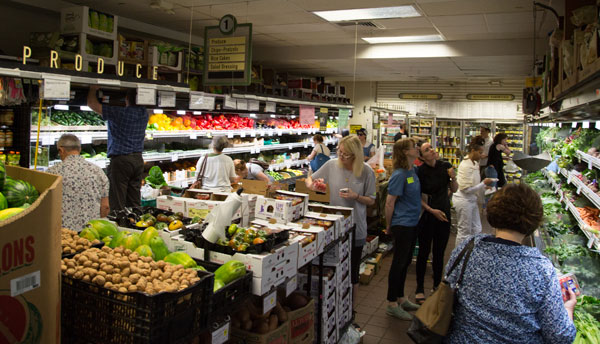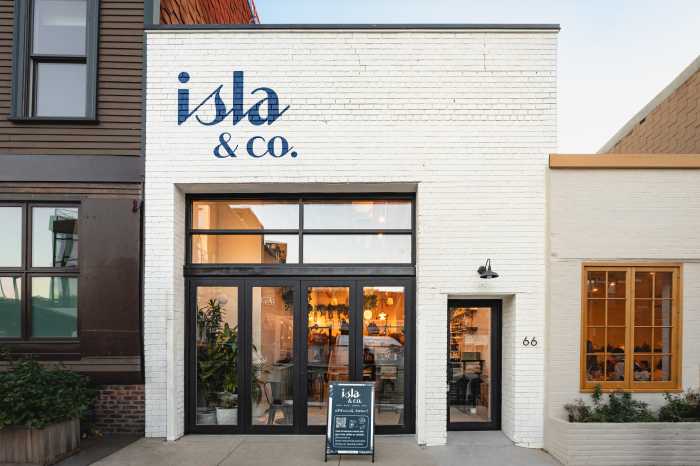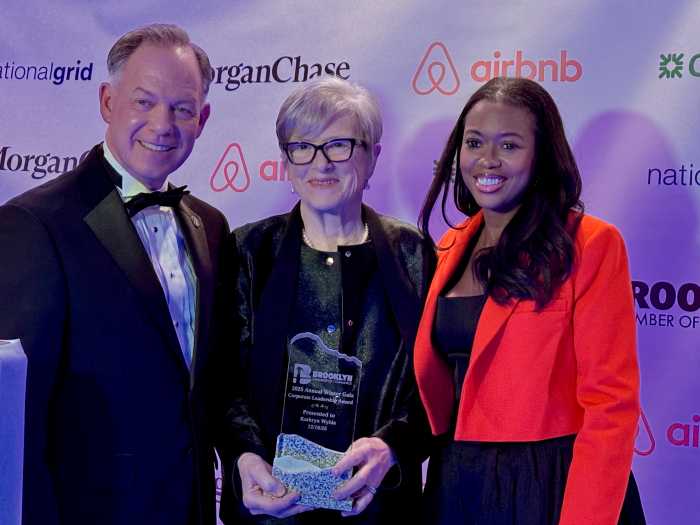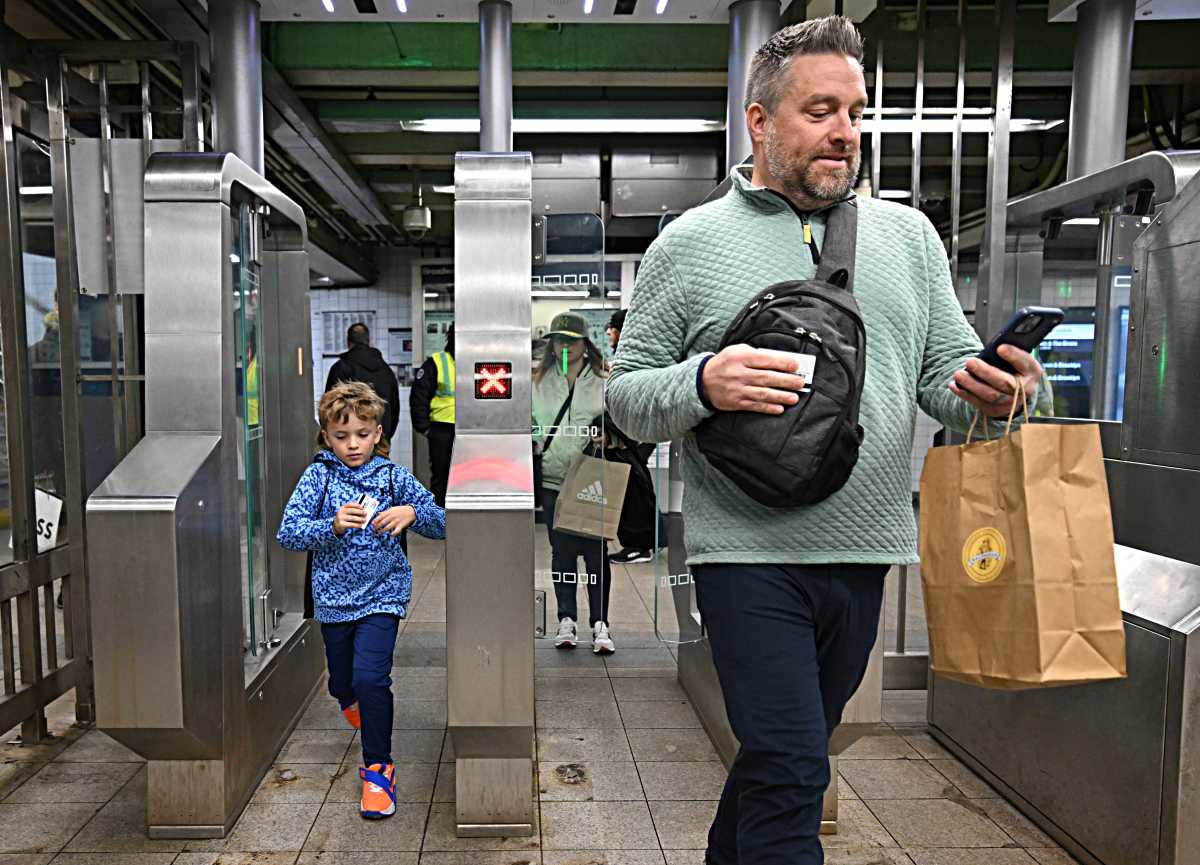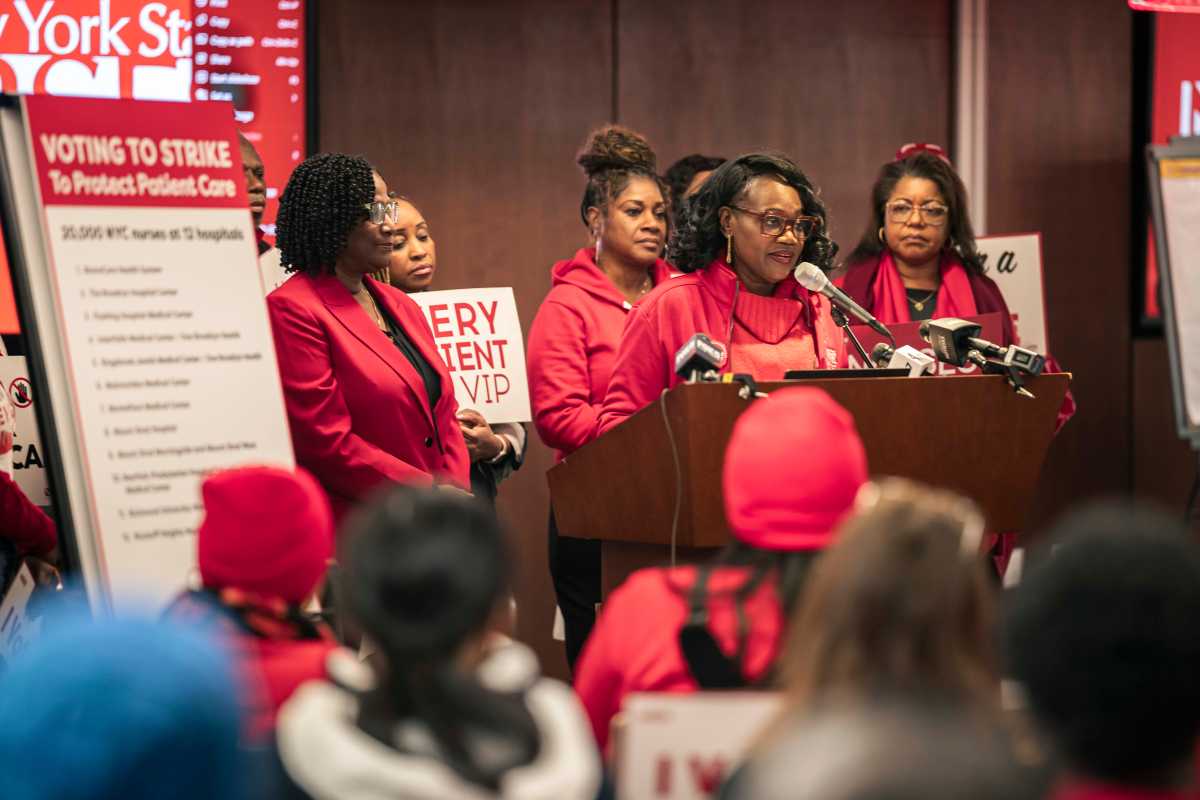They’re one step closer to bringing the farm to another table.
Membership at the Park Slope Food Co-op is now so overgrown that the bastion of cheap, organic produce must either expand to a new location or begin refusing thousands of grocery-starved shoppers’ admission to the cooperative market, according to a founding member and employee.
“We have two paths ahead of us,” said Joe Holtz, one of 77 paid employees at the otherwise member-owned and staffed store. “You could say, ‘Okay, we’ll go into our shell.’ But the other way to look at it is that we’ve hit upon something, we can duplicate it, and who’s to say we can’t serve another 14,000 people.”
Shot-callers at the commercial commune located at 782 Union St. between Sixth and Seventh avenues were forced to cap its membership at around 17,000 cart-pushers — about 500 more than the co-op boasted when its leaders first announced the possibility of an expansion back in 2016, Holtz said.
New members are only permitted when current ones leave, forcing higher-ups to limit the number of seats available at the cooperative supermarket’s orientation meetings as a form of gate-keeping, according to the employee, who said there simply is no more room in the grocer’s current retail space to accommodate more shoppers — many of whom come from as far away as the outer boroughs of Queens and the Bronx to toil two-and-a-half hours each month in exchange for access to the co-op’s aisles of inexpensive fare.
“We’re kind of full,” he said.
The plan to branch out — which first required review by a specially created committee — is inching along with the introduction of a 15-minute online survey for members, whose responses will be used by the appropriately named Second Location Committee to prepare a report, due sometime this summer, that addresses interest in and concerns about a potential move.
The poll asks practical questions regarding the width of aisles and the importance of nearby public transportation, as well as philosophical queries about the need to spread the co-op’s model to new neighborhoods and whether a satellite space will stimulate gentrification.
But current members seem most concerned about the sheer congestion — especially on weekends — at the grocery store, which made $56 million in sales last year alone.
“I actually won’t shop on the weekends because of overcrowding,” said two-year member Tracy Walsh.
Another patron — who with three other members made headlines for storming a 2016 co-op meeting about banning Israeli products to protest that country’s occupation of Palestine — agreed that browsing the grocery store on busy weekends has become practically impossible.
“It’s terrible,” said Alan Ettlinger.
But expanding the cooperative market raises worries unique to its business model, according to Holtz, who said that if a new location — which he predicts will be about the same size as the original space — is too far away, it won’t serve many current members, leaving co-op brass with the arduous task of building a new army of socialist shoppers who may not share the institution’s progressive ideals and operational know-how.
“If you don’t populate it, you’re starting without any of the people who bring the culture and understanding of the organization to the new place, and you’re taking a bigger chance,” he said.
And there’s always the possibility that the new location won’t take, presenting a financial risk to members, who may simply prefer to play it safe and stay put, Holtz said.
“If our members were to vote in favor of this — which is a big if — and we find a place, invest in and build it, and then enough people do not come, it could go wrong,” he said.
Decision making at the Park Slope Food Co-op — much like in Albany — moves slowly, however, and opening a second location will likely require several votes, including a full referendum, which would then require approval by the market’s board of directors, according to Holtz, who said he anticipates some of the many expected votes to occur before the year’s end.


